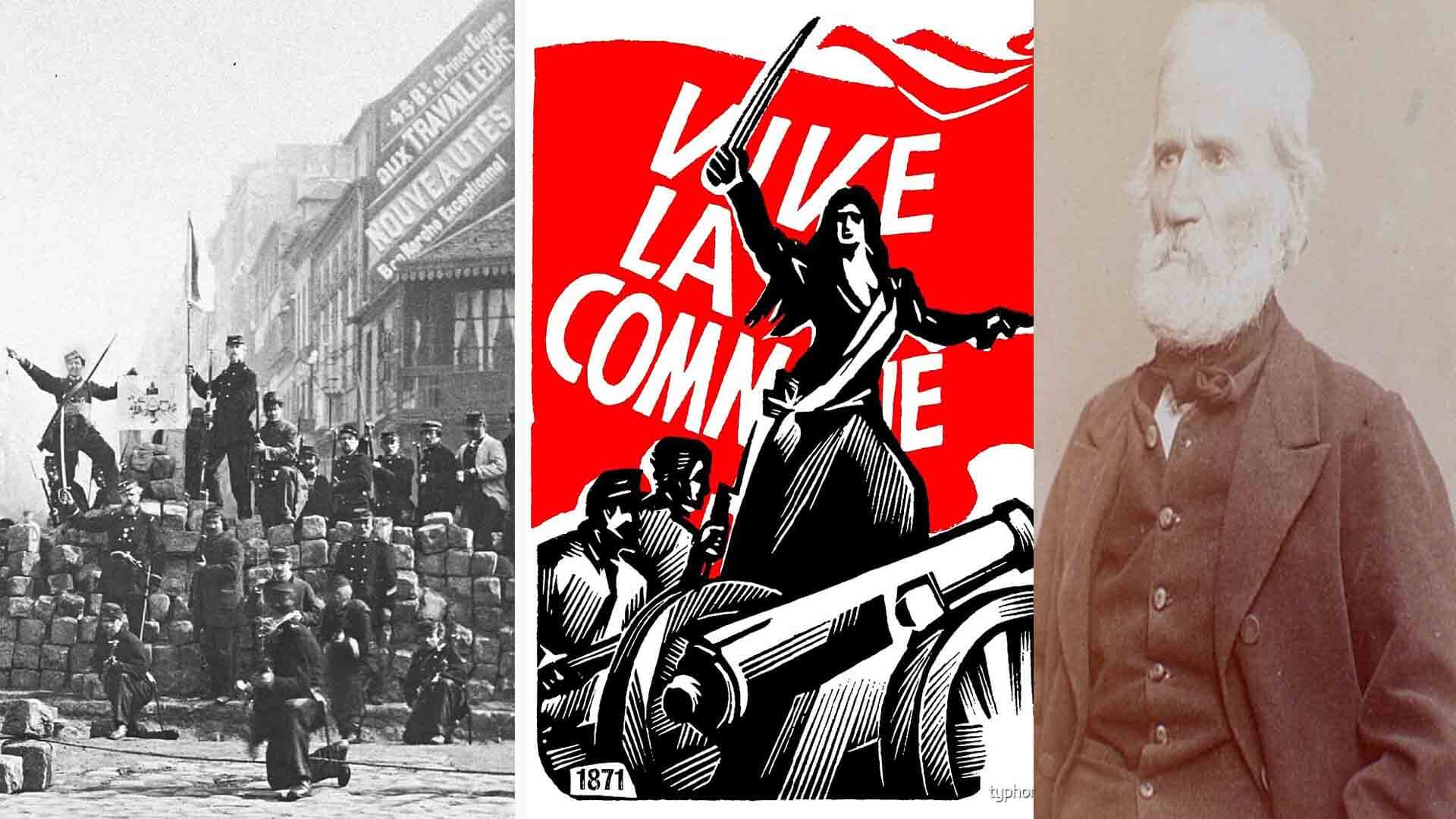I.Introduction
The Paris Commune, though it was short-lived, remains a serious subject of debate among modern-day historians and the French People. Even after 150 years since the uprising of the people of Paris has begun, this political event still divides the French people. Many questions still need to be answered about this major political and military event of the 19th century.
One of them is: What if the Paris Commune succeded? How would France look like if the communards had succeeded in defeating the governmental army? What would have been the impact of the success of the Paris Commune on international relations?

In this article, I am going to try to cover as much as possible the political background and goals of the Paris Commune while also trying to figure out possible alternate scenarios.
How much would history have changed if the Paris Commune had succeeded?
II. Historical Background
Paris before the events of 1871 had a long tradition of being the revolutionary city of France, it was the city where the first sparks of the French Revolution had appeared. It was the leading voice of the revolutions in 1831 and 1848.
In 1871 the workers of Paris had risen up against the central government of France in a situation of crisis for the nation, but this time the situation was different, most of France didn’t answer the call for uprising and remained loyal to the central government.
As a consequence, the Communard regime only lasted a few months before being crushed by the forces of the Versailles government. What was different this time?
The communard movement had deep roots in the revolutions of 1848. In that year the Parisian workers rebelled against the monarchy and for a short time, a republican government was installed.
Unfortunately for the republican movement, Napoleon III organized a coup d’etat and installed himself as the new Emperor of France.
Napoleon III, like Napoleon Bonaparte, had very ambitious plans, he wanted to restore France’s place in the World as a Major Power.
His plans, however, will be crushed by Bismarck and the Prussian Army during the Battle of Sedan in 1870.
The military disaster will represent the first spark that will trigger the events on the streets of Paris in March 1871.
France was now in political turmoil, and the power vacuum had to be filled quickly. With the deposition of Napoleon III, the political scene was now divided between the Conservatives and the Left.
While the Conservatives(Orleanists, Legitimists, Republicans) wanted to end the war against Prussia as quickly as possible, the Left wanted to continue the war to save the honor of the Nation and take advantage of the situation to attempt to create a new social order.
It is important to note here, that though history agreed on the existence of 2 blocks(Conservatives and Left) there was no solid unity, in reality, also for the Left there was no clear established plan that preceded the foundation of the Paris Commune.
When the German Army arrived near the city of Paris on 20 September 1870, the city had very few defenders left. Most of the French Army was trapped in Metz, while many other soldiers were taken prisoners by the victorious Prussians.
The French authorities had to resort to a desperate solution, the Garde Nationale(National Guard), which on paper reached 300.000 men.
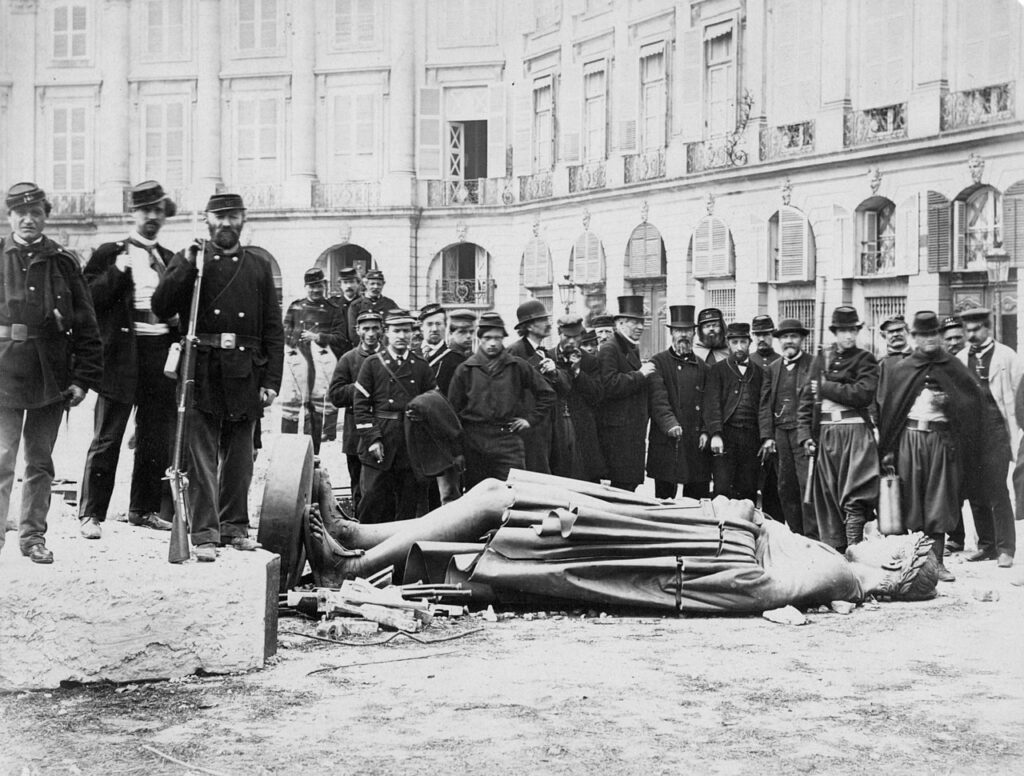
Organized and equipped by the neighborhoods of Paris, they had limited experience and discipline, many of these units will become radicalized and join the Commune, becoming its main armed force.
Why were the Parisians and especially the Garde Nationale radicalized to the point that they choose to form their own new social and political order?
Two aspects need to be covered: The effects of the Siege of Paris and the Peace treaty with the Prussians.
The Parisians, unlike the French army at Sedan, endured a heavy siege for months against the Prussian army.
Due to the difficult situations endured during the siege, followed by the harsh terms of the peace concluded by the new government led by Adolph Thiers, the Parisians felt betrayed.
Both the siege and the harsh peace treaty contributed to the radicalization of many Parisians, especially from the working class. These radicalized people will be the ones who will rise up against the Legitimist Government.
The new government also didn’t do anything to defuse the situation, on contrary.
They abolished the payments of the National Guards, who fought bravely during the Siege of Paris, a moratorium on paying rents during the war was suspended and even Bonapartist officers were again appointed into key positions.
The fire of the revolution was ignited when Adolph Thiers ordered the confiscation of the 400 cannons who were in possession of the radical National Guards who defended Paris.
This led to the clash on Montmartre Hills between republican troops and radical National Guards and precipitated the chain of events.

III. What were the goals of the Paris Commune?
Due to the spontaneous nature and short time of existence it is very challenging to determine the true nature of the political regime that was the “Commune of Paris”. Was it the first “dictatorship of the proletariat” a democratic socialist state or an anarchist commune?
A definitive answer to these questions is also not possible due to the many political factions from the Left political spectrum who supported the Commune of Paris: Blanquist, socialists, Marxists, Jacobins, anarchists… and many others.
What is certain is that the Council of the Paris Commune issued a series of reforms in the short 2 months of existence with the intention of improving the standards of living for the citizens of Paris.
Below are the main reforms proposed and enacted during the 2 months of existence:
-exemption for paying rents between October 1870-April 1871
-granting pensions for war veterans(including the national guards) and widows
-Redistribution of the vacant homes
-Ban on night work for bakeries, also a 10-hour working day was introduced
-abolition of child labor
-Prohibition of fines imposed on the employees by their employers
– the abandoned workshops will be taken over by the unions and managed by them
-separation of the church from the state
-secularization of the educational system
-abolition of interest on the debts
Due to the short time of existence of the Paris Commune, many of the decrees and laws enacted weren’t fully enforced because of the military and political situation.
IV. How could the Paris Commune have succeeded?
How could the communards have succeeded in the fight against the government troops of Versailles?
There are 3 possible scenarios:
1. Better coordination at the beginning of the insurrection
2. Taking the early initiative against the Versailles Government
3. Gaining the support of the other major cities in France
1. Better coordination at the beginning of the insurrection
Due to the spontaneous nature of the Communard movement in 1871, there were key targets at the start of the insurrection that was missed by the Communards: Versailles Government, Adolph Thiers, and Patrice MacMahon.
After their first major success in preventing the government troops from seizing the cannons on Montmartre, the communards tried to seize the initiative but failed to obtain a decisive result early.
The Communards attacked Hôtel de Ville where they believed Adolph Thiers and the Government were located. The attack was a success, but their targets were not in the building.
Thiers and his loyalist were in reality in the building of the Ministry of Foreign Affairs, which was lightly guarded.
After learning about the determination of the National Guard and knowing that he couldn’t organize an efficient resistance with the limited troops he had, Adolph Thiers ordered the evacuation of Paris.
The forts of MontValérien, Issy, Vanves, and Montrouge were quickly evacuated, also all policemen and administration left Paris.
At the same time, Patrice MacMahon, the future commander of the forces against the Paris Commune, escaped exactly on time, with the help of a sympathetic national guardsman who facilitated his flee at a rail station.
At the same time, the Communards were searching his house, another lost opportunity for the Paris Commune.
Another major loss for the Communards was represented by the arresting of Louis Blanqui on March 17 by the central authorities.
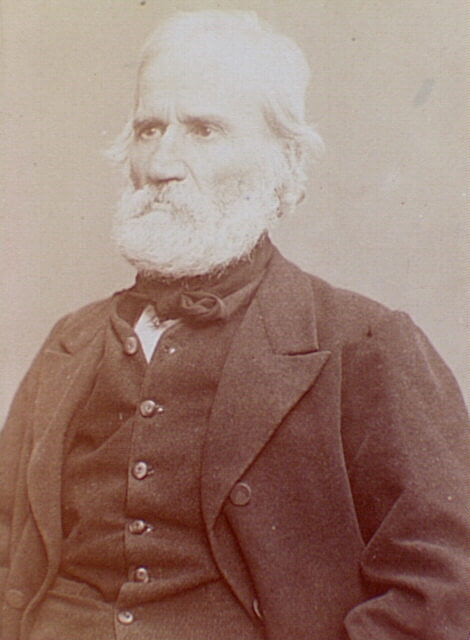
Adolph Thiers, anticipating that Blanqui could play a leading role in the revolutionary movement, ordered his arrest.
If not put behind bars, Blanqui probably could’ve been a good leader for the Paris Commune, since he was under arrest, during the 2 months of the Commune, he couldn’t play an important role, although some of his disciples had become elected officials by the revolutionary movement.
2. Taking the early initiative against the Versailles Government
Another major opportunity missed by the National Guards early on, between March 18 and April 01, instead of planning a major march against the Government who retreated at Versailles, the Communards lost precious time with organizing the new socialist utopia.
Both Adolph Thiers and Patrice MacMahon used these 12 days to consolidate their troops and when the Communards finally decided to attach the Versailles troops, it was too late for them.
The French troops under the command of MacMahon were already entrenched and successfully repulsed any Communard offensives.
Of course, Adolph Thiers and MacMahon then seized the initiative and marched straight to Paris.
We all know what happened next, the loyalist troops assaulted the city and it is estimated that approximately 6000 Communards were killed during the events that remain in history as the “Bloody Week”. Some historians think that the actual figure is between 10 to 20,000 troops killed during this time.
3. Gaining the support of the other major cities in France
From the beginning, it is important to mention that the Paris Commune enjoyed some minor support from other major cities in France.
The Commune had many sympathizers in the working class and republican movements.
Statistically, the republican movement in France was strong at that time, during the 1869 French Parliamentary Elections, the Republican candidates received approximately 3,350,000 votes, compared to rural, monarchists who gained over 4 million.
The working class in Paris alone was very strong, from a city of 2 million people according to the official census before 1870; 500,000 people were from the working class.
From the numbers presented above, we can conclude, that the Communards could’ve gained more support if they have managed to effectively mobilize their efforts.
There were many attempts outside of Paris in 1871 to establish other Communes, but unlike the Capital city, these attempts failed.
Below is a list of major French cities that tried to establish similar political regimes like the Paris Commune. The timeline of the events is very similar, the national guards or revolutionaries tried to storm the City Halls but ultimately the authorities manage to finally defeat the movements.
Lyon – upon hearing the news of the revolution in Paris, the National Guard, socialist, and other left-leaning movements occupied the City Hall on March 22 and installed a revolutionary committee, which lasted only for 3 days before being dispersed peacefully.
Saint-Étienne – the radical elements of the National Guard of the city occupied the Town Hall on March 24 and established an Executive Committee, the movement was quickly and peacefully dispersed by the republican loyal troops on March 28.
Marseille – like Lyon, Marseille had a long tradition of radical, republican, and revolutionary support. The Mayor of the town at that time who was a socialist, Gaston Cremieux, openly called during a rally the support for the Paris Commune.
The situation quickly escalated, because like in Paris, National Guards and radical revolutionaries stormed the Town Hall on March 23.
Unlike the other cities mentioned previously, Marseille was retaken by republican forces after heavy fighting against a force of 2000 National Guardsman, approximately 150 insurgents and 30 soldiers had lost their lives in this battle.
Toulouse – a force of revolutionary national guardsmen took the city Hall, Prefecture, and Arsenal on March 24, but then on March 27, the city was handed over peacefully to the forces loyal to the Republic.
V. What if the Paris commune succeeded? 3 possible scenarios
What if the Paris Commune was victorious and Adolph Thiers and the Versailles government were deposed? Below are possible scenarios:
1. Civil War.
2. A new European Coalition against France
3. Consolidation of the New Regime
1. Civil War
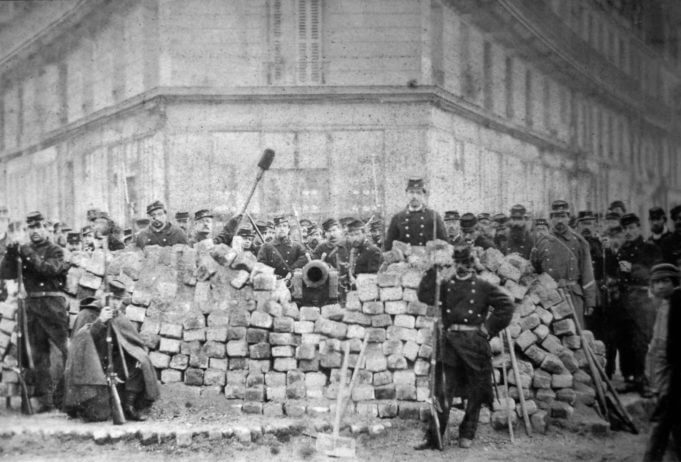
Assuming that no Major Power(Germany, Great Britain, Russia, Austria-Hungary) don’t intervene in this conflict.
Let’s say the Communards manage to crush the Versailles Government and Adolph Thiers is deposed. What would happen next? As mentioned earlier, many cities in France sympathize with the Parisian revolutionaries and their cause.
Could the Communards manage to quickly take over France? What are the elements of the French society that could attempt to organize a resistance against this new revolutionary wave?
The revolution and the communard movement would’ve achieved rapid success in the major cities due to the support of the republicans and the working class.
It is important to note that in the major cities of France, the Communards will need to attempt to win the support of the moderate republican forces if they hope to achieve a quick victory in the Civil War.
The major question now is what about the rural part of France, where the peasants were more loyal and conservative?
What would’ve been the reaction of the conservative elements of France to the rapid rise of this radical movement?
In my opinion, the chain of events would’ve been similar to the ones from the French Revolutions(1789-1799), the wealthy, middle class from the rural areas would choose to flee, some would choose to resist against the new authorities.
If the Communards want to avoid an all-out Civil War, they also need to come up with reforms to gain the support of the low classes from the many still rural areas of France of that time, else risk a major conflict similar to the Russian Civil War(1918-1922) later on.
And then there is the question of the French Colonial Empire, how would the colonies react?
The most probable scenario here would be that the remaining monarchist, loyalists of Thiers would try to form a resistance movement against the Communards from mainland France.
In this case, the Communards would only control mainland France, while the old French Government would still control the Colonies, leading to another phase of a possible civil war.
In this situation, the Communards would first need to consolidate their authority in mainland France then attempt to recapture the lost colonies from the monarchist, legitimists government who still tries to resist.
The other possibility regarding the fate of the French Colonial Empire is that some colonies will choose to side with the Commune of Paris, while others will proclaim their independence.
2. A new European Coalition against France
Deja-vu? What would be the reaction of the Great Powers of that time(Great Britain, Germany, Austria-Hungary, Russia) to this new radical regime of the Paris Commune who now is in control of entire France?
Certainly, the Great Powers of the time, like in the case of the French Revolution, would not let this newly established regime intact.
A coalition of reactionary states, with a predominantly conservative ideology under the claim of reinstating the law and order in France, would quickly intervene and put down the “insurrection” as quickly as possible.
Let’s remember the many coalitions formed against the Republic of France during the Revolutionary Wars.
A revolution for any existing social order is a threat and the Great Powers would’ve just sit and wait for the Commune of Paris to consolidate and then extend its influence into their own lands.
So for avoiding any social unrest in major working cities like London, Berlin, Vienna, a major military invasion would be organized to crush this regime and reinstall the deposed Adolph Thiers or a French politician with similar views.
Restoring the French monarchy is also a possibility.
A military invasion at this time would quickly succeed because the French economy and Army were already exhausted by the war against the Germans and by internal unrest, so it is expected that military resistance would be minimal.
3. Paris Commune survives and consolidates its regime.
What if the flame of the revolution ignited in Paris spreads quickly overall France and the new regime somehow manages to secure peace negotiations with the other European Powers of the time?
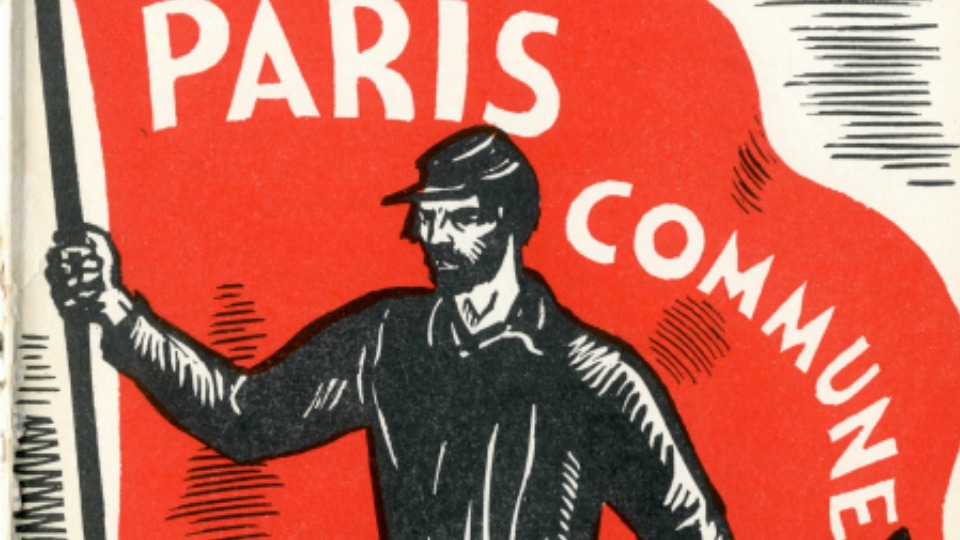
By buying precious time with diplomacy, the new Revolutionary regime would’ve had precious time to consolidate internally, both economically and politically.
After securing the new nation against a possible invasion from a foreign power, the next biggest issue for the now Commune of France would be the nature of the new political system.
Because of the short life of the Paris Commune in our actual timeline, it is hard to predict if this “workers state” would go on a Centralized/communist path or anarchist/decentralized way.
If we look at our actual timeline, the Commune established during its existence a “ Central Committee” which could in our alternative timeline serve as a starting point.
This committee would not voluntarily give up powers, and in my opinion, like in the first French Revolution, would try to establish a centralized republic and centralize as many powers as possible.
In our timeline, the Central Committee organized elections in Paris to gain some kind of legitimacy.
The result of these elections was quite interesting, many of the newly elected officials were followers and disciples of Louis Blanqui and Proudhon, who had very different ideologies than Karl Marx.
Assuming that these results would extend to entire France, it is possible that the Commune of France would not have been Marxists, but rather more radical on the left political spectrum.
Economically, the “Commune of France” would’ve been a planned economy and it would’ve been also possible to see the first state to introduce the “Five-year plans”.
The new political elite would try to prove to the people that the “communard way” is better economically while at the same time demonizing the “Old Regime”.
France Commune would probably, like the early Soviet Union in our timeline, experienced rapid industrial growth and catching on to the Great Industrial Powers of the time.
If the Commune of France could prove that the command economy is a viable alternative to the capitalist economic system, then the French system would become a source of inspiration for many worker movements and similar socialist/anarchist organizations.
These organizations in turn would try to organize revolutions in other countries in order to expand the model of the Commune of France.
For international relations, we can use here to the example of the Soviet Union.
In this alternative timeline, the France Commune after consolidating internally will try to export the revolution to other countries to avoid international isolation.
Exporting the revolution to other countries, like the Soviet Union, could be a double-edged sword; it could either lead to changes of regimes in other countries, but could also serve as the best excuse for the other European Powers to justify the creation of another Grand Coalition again this “socialist utopia”.
And speaking of exporting the revolution abroad, there is also the question of the French Empire, most probably many of the French colonies would either become socialist satellite states or proclaim their independence.
In Europe, the first nations that would be affected by these new revolutionary/socialist states would be Great Britain and the German Empire.
If not dealt with early, major workers and socialist movements could rise rapidly in both states with the support of the Commune of France and attempt to organize revolutions against the national governments and install republics.
Conclusion
As you can see if the Paris Commune succeeded, the world we know today could’ve been way different, and also the course of events of the 20th century would’ve been radically different.
Sources:
Robert Tombs, The Paris Commune 1871, Longma, London and New York, 1999
Mitchelle Abidor, Communards: The Story of Paris Commune of 1871 as told by those who fought for it, Marxist internet archive, 2010
Donny Gluckstein, The Paris Commune: A revolution in democracy, Bookmarks Publications, University of North Carolina.
https://www.paris.fr/pages/les-150-ans-de-la-commune-l-origine-1-5-16961
